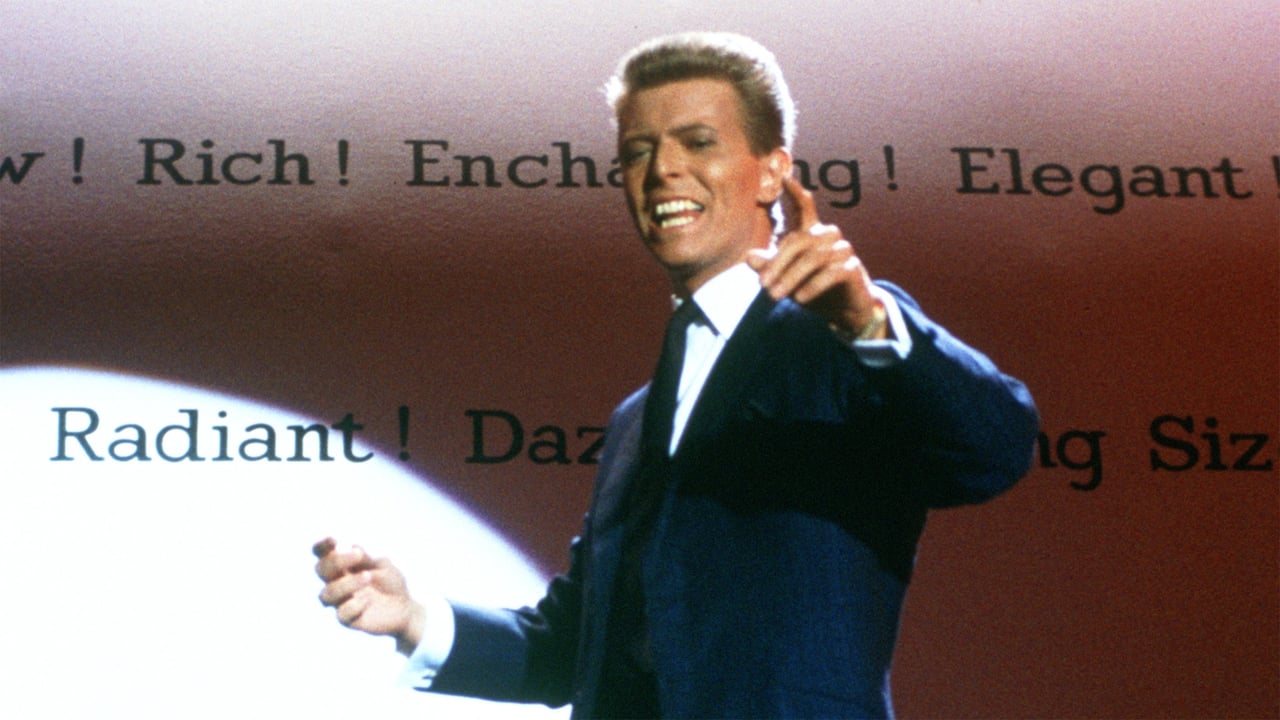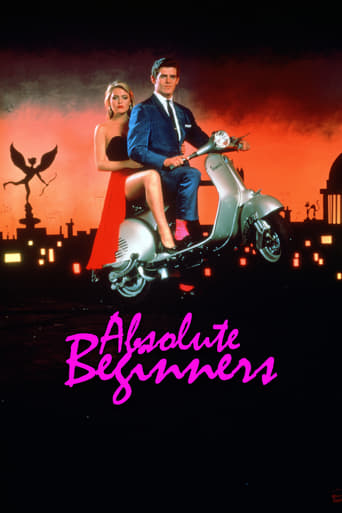



Too much of everything
Excellent, a Must See
One of the best movies of the year! Incredible from the beginning to the end.
View MoreThrough painfully honest and emotional moments, the movie becomes irresistibly relatable
View MoreLike Francis Ford Coppola's "One from the Heart", "Absolute Beginners" thrives on the artifice of the big Hollywood musicals of the fifties when this film is set, (it's based on Colin MacInnes' cult novel), but director Julien Temple is no Coppola and while this does have several sublime moments there are perhaps just not enough of them, (it's certainly uneven), and the young leads, Eddie O'Connell and Patsy Kensit, are terrible. However, on the plus side, the sheer artificiality works for, rather than against, the picture, there are a couple of good supporting turns, (James Fox, David Bowie, a surprisingly good Ray Davies), and it has a terrific score by Gil Evans. It also has a tendency to resemble a series of great music videos with big chunks of clunking narrative in-between. The 'Keep Britain White' ending, however well-intentioned, is an uneasy mix of seriousness, 'West Side Story' choreography and Walpurgisnacht. It was never going to be a hit but, like the novel, it has definitely built up a cult reputation.
View MoreBeing a fan of most musicals I expected a fun story with hopefully catchy songs. Alas this outing proved to be a disappointment in more fields than one.The film's story is meant to tell the story of a young photographer's romance with a nightclub singer and his corruption by a greedy advertising agent. And then there's some subplot about racial tensions escalating to rioting. Sadly the story immediately falls flat on impact as soon as the protagonist begins his voice-over of the film's events. The performances of Eddie O'Connell and Patsy Kinset are particularly painful as their romantic chemistry is clearly lacking. Kinset comes off as whiny at the worst times or she is completely uninterested in interacting with her fellow actors. Her big song early in the film is instantly forgettable as she repeats the song's title over and over that it is maddeningly irritating. O'Connell as well is not much of an actor as he speaks his lines with a lack of passion; like just reading the script without emotion. His own singing is also unremarkable like Kinset's; lack of passion or real talent in the art.Terribly unused and meant to be a major player in the film is David Bowie as the corrupt Vendice Partners. Given Bowie's proved acting abilities in the past, the filmmakers seemed to have discarded this detail except for Bowie's songwriting ability and terrific vocals. Bowie wrote the film's title song that plays over the opening credits and is the film's only memorable musical number and has his own musical number within the narrative. Sadly the performance and musical sequence is utterly forgettable after the film's end which is a crying shame for the gravitas that David Bowie brings to his film performances.If you want an example of how not to do a musical, this is a sure bet.
View MoreAbsolute Beginners was released in 1986, the same year that saw the release of another musical film about the 50s, Little Shop of Horrors. Little Shop is an edgy but camp doo-wop love story. Absolute Beginners is a much edgier, much campier view of society with a romantic back story. Some films that influenced AB are West Side Story (1961), Tommy (1975) and Streets of Fire (1984). Streets of Fire featured a similar story of a girl choosing a rich guy, trading the streets for security, against a backdrop of urban nightlife and confrontation, set to the lush music of the 50s and later.But the film AB reminds me of the most is One from the Heart (1982), Coppola's sound stage masterpiece. AB employs the same kind of stylish presentation, with sets bathed in primary colors and moody shadows, and camera movement that flows through the sets or insinuates itself through odd angles or unique perspectives.AB is very ambitious. With a talented cast of actors, singers and dancers, it reflects on the "invention of the teenager" in America, the search for monetary success and the "inevitable" selling out, the gentrification of London and its racial implications, criticism of capitalism through its (supposedly) representative advertising and marketing industries, and the proliferation of hate groups, especially those grounded in racial prejudice.But the music is what drives this film and it is worth seeing for the music alone. David Bowie, Ray Davies and Sade--among many others--are showcased on a soundtrack that includes 50s rock influences from rockabilly to punk.AB stresses style over substance, but there is plenty to think about. I think repeated viewings would reveal more and more as this film is dense with imagery and dialogue.Watch for the beautiful Patsy Kensit playing Suzette. And the credits show that Bruno Tonioli (Dancing with the Stars) plays a Maltese lodger--something fun to look for.It is also fun to note the 50s references in the film. For example, a hula hoop. And the coffee shop beat scene.
View MoreGiven the superb, gritty 1959 novel and the potential of a wonderful rock 'n' roll/modern jazz soundtrack, the film from the truly dire 1980s has my vote for the worst film of all time. The novel's inspiration appears to begin and end with the title, as wonderful potential scene after wonderful potential scene is simply replaced by an extended pop video from the worst era for pop music. The saddest thing of all is that the wonderful novel had never been filmed before (either on television or at the cinema) and this dire effort has probably put paid forever of an adaption of such a sensational book. The author would have hated it and anyone remotely involved in this film's making should be (a) thoroughly ashamed of themselves and (b) are completely deserving of the 1980s.
View More